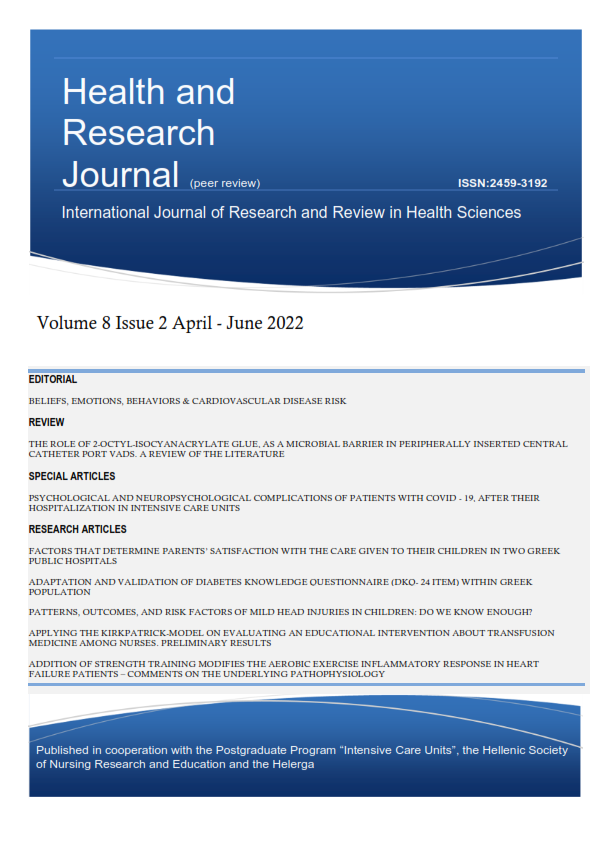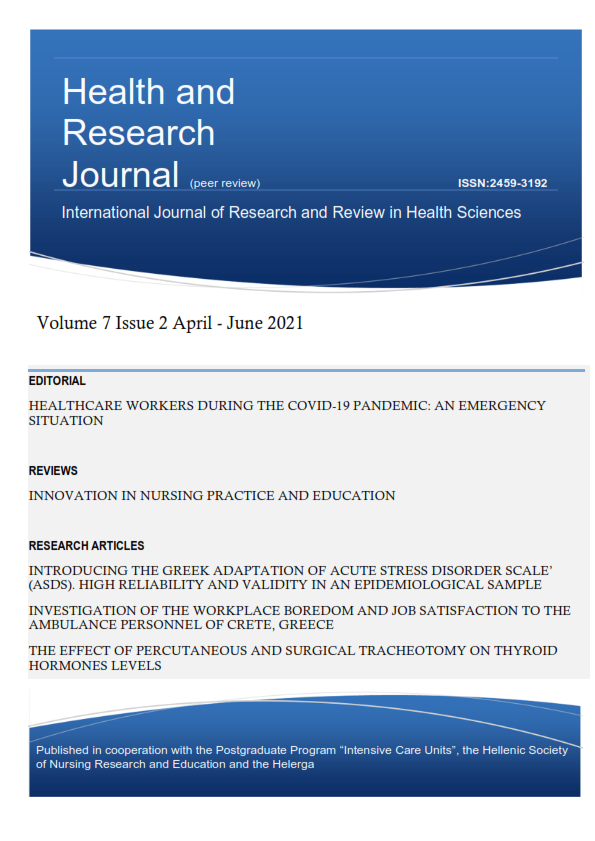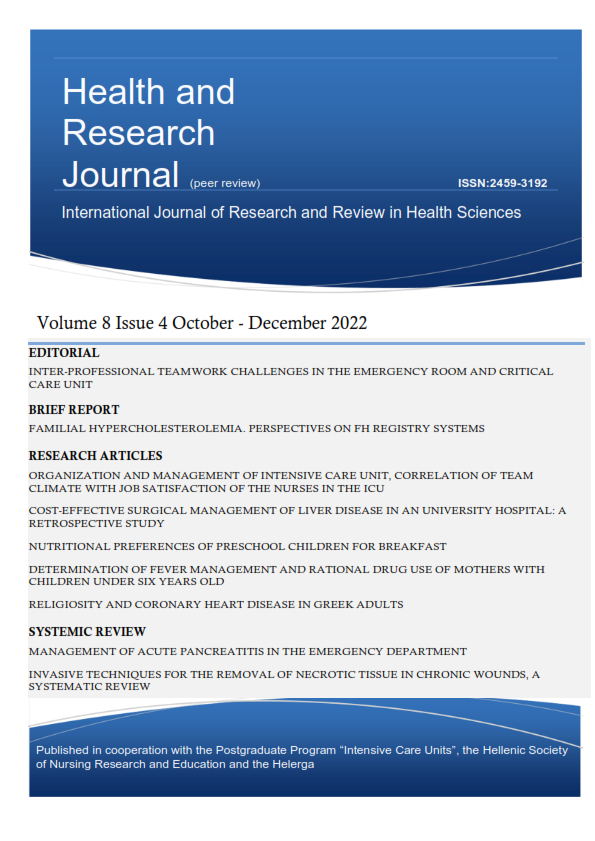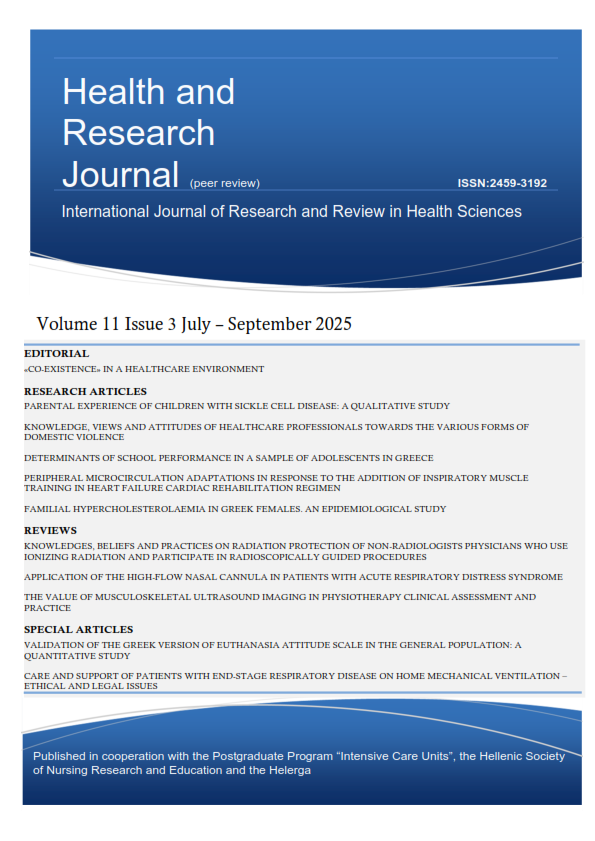Nurses’ incentives for participation in continuous professional education activities and their health information literacy levels amid the covid-19 pandemic
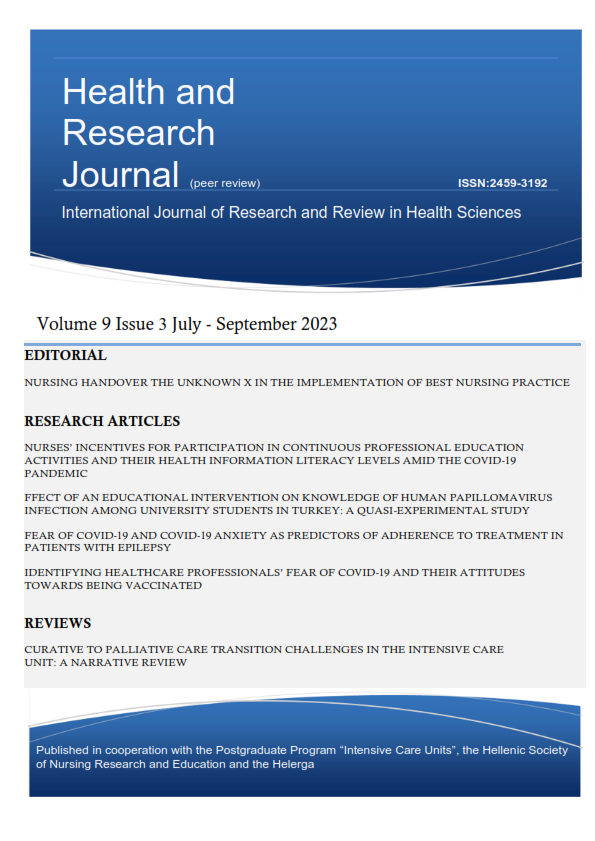
Abstract
Background: Digital health information literacy is a prerequisite for Continuing Nursing Education (CNE). CNE has a positive impact on the improvement of healthcare quality as well as to healthcare personnel’s knowledge and skills.
Aim: To investigate the incentives for participating in CNE activities the nurses from “Ippokrateio” General Hospital of Thessaloniki demonstrate. Also, the relation to their digital health literacy levels during the Covid-19 pandemic.
Materials and Methods: 120/130 employees of the hospital’s nursing personnel (response rate: 92.3%) took part in the cross-sectional study from February to April 2021. The participants were asked to complete an anonymous, structured, closed-ended questionnaire, formulated by the Participation Reasons Scale and e-HEALS. Data analysis was performed with IBM SPSS 21.0
Results: Nurses were motivated mainly to receive CNE in order to improve their professional skills and provide better services to patients. Those with better digital health information literacy levels regarded highly all incentives’ categories; professional skills improvement and better services provided to patients, (b) personal benefits gain and job security, (c) professional engagement and (d) learning and interacting with colleagues. Those of younger age considered more important to improve their professional skills and provide better services to patients, while those working under fixed-term contracts, professional engagement, personal benefit and job security. Nurses having children acknowledged as more important the personal benefit and job security incentives.
Conclusions: Nurses with higher digital health information literacy levels were keener in participating in CNE activities, as presented more motivated.
Article Details
- How to Cite
-
Aidonoudis , V., Theodorou, P., Niotaki, I., Psomiadi, M. E., & Platis , C. (2023). Nurses’ incentives for participation in continuous professional education activities and their health information literacy levels amid the covid-19 pandemic. Health & Research Journal, 9(3), 120–130. https://doi.org/10.12681/healthresj.30305
- Section
- Original Articles
Copyright notice:
Authors retain copyright of their work and grant the Health and Research Journal the right of first publication.
License:
Articles are published under the Creative Commons Attribution 4.0 International License (CC BY 4.0). This license permits use, sharing, adaptation, distribution, and reproduction in any medium or format, including for commercial purposes, provided that appropriate credit is given to the author(s) and the original publication in this journal, a link to the license is provided, and any changes are indicated.
Attribution requirement:
Any reuse must include the article citation and DOI (where available), and indicate if changes were made.



